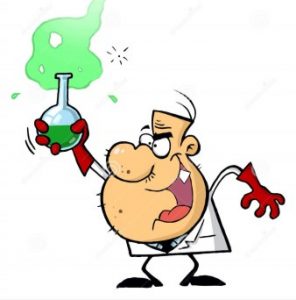Hey Dave’s Garage-
What is synthetic motor oil all about? Why is it better than natural oil? How does it differ chemically? I always thought that frequent oil changes were necessary because of the build up of acid and other contaminants. Why don’t they build up in synthetic oil the same way? Wendell Noble
Wendell, great question! There is a lot of information, and a lot of strong opinion here.
There are three types of engine oil sold in the U.S. that are considered “Synthetic”.
 Group III synthetics are oils based upon hydrocracked crude oil. They have many qualities of “true” synthetic oils, but they are not manufactured or “synthesized” in a lab. They are refined from crude oil.
Group III synthetics are oils based upon hydrocracked crude oil. They have many qualities of “true” synthetic oils, but they are not manufactured or “synthesized” in a lab. They are refined from crude oil.
Group IV synthetics are produced from Polyalphaolefin base stocks, and are one of the two “true” synthetic oils available in the US.
Polyalphaolefin (PAO) is a manufactured ethylene chemical used to manufacture many plastics and fabrics. It also can have good properties as a lubricant. Pure PAO alone does not work well as an engine oil. It still needs additives to work as an engine oil.
Group V synthetics are almost exclusively ester based. Like PAO based lubricants, group V base oil needs additives to be an engine oil. Group V based oils are very specific application lubricants. I don’t believe they’re used as a base in over the counter synthetic engine oil.
So, so called group III synthetics are a more highly refined crude oil, with a base stock that comes out of the ground as crude oil.
Group IV synthetics are synthesized from Polyalphaolefin (PAO).
The benefit of a true synthetic is uniformity and consistency in the molecular make up of the base oil. Unlike refined crude oil, synthetic oil has consistent molecular chains. Think of crushed gravel being ground up to similar sized pieces (conventional oil), and compare that to manufactured glass marbles (Synthetic). The marbles are more consistent in size and shape. The marbles would make a better lubricant.
Cost may be the best way to determine if oil is a true synthetic. If it is under $5.00 a quart, it is probably a group III synthetic. The true answer can be found on the bottle or the manufacture’s website.
Regardless of the base lubricant, all engine oils have additives to control viscosity through temperature ranges, and additives to keep the engine clean and well lubricated. These additives still wear out or break down regardless of the base oil used. Engine oil is also diluted with by-products of combustion through use.
So why use synthetics? Synthetic oil is a superior lubricant. The oil is consistent on a molecular level, with no impurities. Refined oil has inconsistent molecular chains and still retains trace amounts of impurities. Synthetic oil maintains viscosity regardless of temperature. Put a quart of conventional oil and a quart of true synthetic in your freezer overnight. In the morning take them out and shake them. The synthetic will still be fluid. The conventional oil will be thick like honey. Remember that next winter when it is below zero and you start your car.
Synthetic oil does not sludge and varnish in the engine as conventional oils do. I have opened up engines with over 200,000 miles on them with synthetic oil, and they look like new inside.
Oil change intervals should still be dependent on driving conditions. Short distance driving is “severe” duty. It is often a good idea to do a Used Oil Analysis to get an idea of when to change your oil. A UOA may show your used oil did not need to be changed, and was still able to properly lubricate. You may find a vehicle with synthetic oil, with few short trips can go 10,000 miles or more before the oil needs to be changed.
From the Editor…. Dave, would you please keep this oil discussion going?
Questions….. Should we use synthetic in our old cars? What about the question of single-weight oil vs multi-weight oils in our old cars, which is best and why? You have mentioned the moisture collecting in our car’s oil pans, especially during winter storage, should oil types come into the conversation here? What about this whole question of 600 weight in our old differentials? What should we use and is 600 weight really 600 weight? Thanks Dave.


Leave a Reply